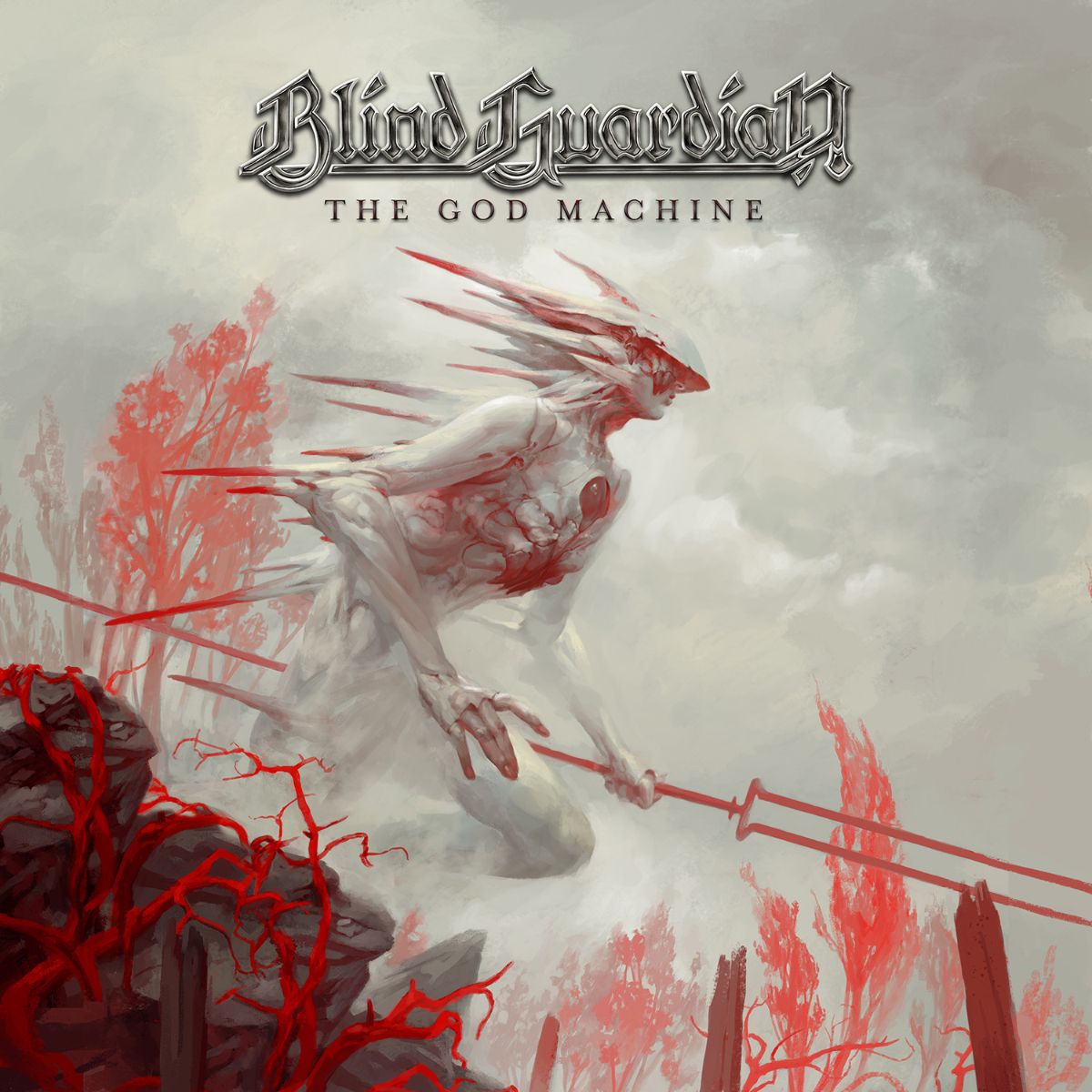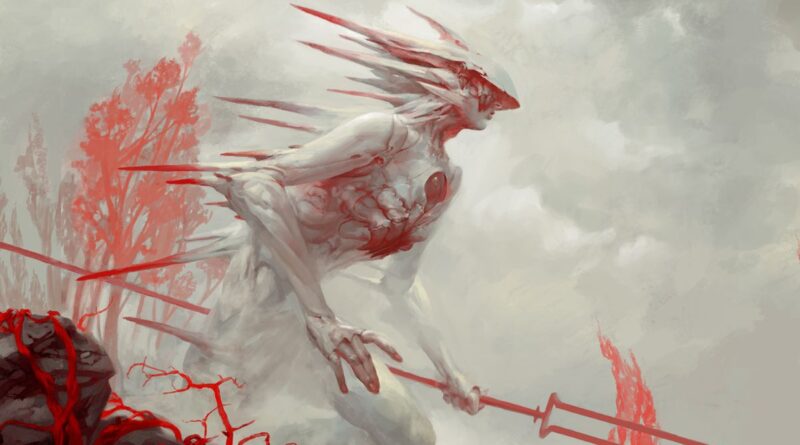ALBUM REVIEW: The God Machine – Blind Guardian
It’s been three and a half decades since BLIND GUARDIAN took on the melodically infused speed metal template of early HELLOWEEN and tasked themselves with out-epicing their countrymen. As BLIND GUARDIAN entered the 21st century, their aggressive core gave way to emphasis on expertly crafted melody above all. They shaped their sound into that of a power metal orchestra, crafting their own unique brand of symphonies and opuses. As they continued to test the limits of arrangement complexity, their initial fury rarely bubbled over. Fittingly, this symphonic focus recently culminated in the long-awaited orchestral project, Legacy Of The Dark Lands. And while the BLIND GUARDIAN TWILIGHT ORCHESTRA was the conclusion of decades of work, it wasn’t clear how much it marked an end to a certain chapter in the group’s mythology. That is, until The God Machine.
To say The God Machine is stylistically unexpected would be to bury the lede. This record is heavy in a way that BLIND GUARDIAN haven’t been since the mid-90s. Opening with the ruthless Deliver Us From Evil, the tone is set with a marked shift not only from Legacy Of The Dark Lands, but everything from A Night At The Opera onwards. Rhythmically, the song is a battering ram of breakneck tremolo-picked riffs and a barrage of kick pedals, while a raspier, venomous Hansi Kürsch leads the charge. Meeting with André Olbrich’s inimitable transcendent guitar leads, the opener swaps the hostility of the verses for a suitably heroic earworm of a chorus. It’s an apt introduction to the album and just a taste of what the German outfit have to offer.
Continuing on a similar path, Damnation sees the band fire on all cylinders with a Valhalla-esque guitar assault, and Kürsch continuing his biting delivery in the verses. Mercifully, Secrets Of The American Gods provides a little breathing room for listeners. While shorter than your typical BLIND GUARDIAN epic, this track loses nothing in terms of extravagance by trimming the fat. As it flits between shades of grey and moments of speed, it eventually develops into a sullen and dramatic chorus; the song’s tight-rope walk between anger and despair effectively a microcosm of the whole record.
Violent Shadows picks up on the ferocity once again, bringing the album back down to the bare, primal basics of metallic rage. Shifting gears between speed metal, punk rhythms and an antagonistic galloping march, it’s one of the album’s straightest tracks and appropriately capped off by a nightmarish screech from Kürsch. The full-throttle approach is picked up a couple more times later on in the album, most fully embraced by the savage Blood Of The Elves. By far The God Machine’s most abrasive number, this one sees drummer Frederik Ehmke let loose with double kicks abound and snares thundering like cannons during the chorus.
To avoid the album crumbling under its own sonic onslaught, the terser moments are punctuated by more considered reprieves throughout. Life Beyond The Spheres is a measured and atmospheric track where electronica-infused synths and discordant orchestration provide the bedding for monolithic ascending guitar riffs. It’s a new sonic area for the band and its morose stomping is a much-needed pace-breaker. While The God Machine lacks anything that could be deemed a ballad, Let It Be No More certainly comes close. Unhurried yet distressed, with occasional lilts of acoustics and plenty of sweeping strings, its forlorn nature is only broken once by Olbrich’s beautifully harmonious guitar solo.
What’s most striking about The God Machine is that, by BLIND GUARDIAN standards, this is a relatively stripped-down affair. Layers of harmonised guitars are replaced with a dogged focus on vicious rhythm parts and singular leads, with Olbrich, other guitarist Marcus Siepen, and Ehmke all in sync to ensure the music remains intense. Even the one-man opera cast that is Kürsch sees his typically opulent vocal parts toned down. Of course, he still provides plenty of grand layered vocals across the board (and it’d be a travesty not to). However, they all work together to supplement a clearer lead vocal part, rather than all vie for centre stage. Similar can be said of the band’s approach to orchestration across the record. When additional instruments are used, they’re used sparingly. Damnation sees hints of brass threaten to appear throughout, with the song eventually climaxing with flourishes of orchestration that accentuate the intensity, rather than dominate.
There is of course a slight trade-off that comes with this restraint. In toning down their melodic tendencies, The God Machine’s choruses are uncharacteristically understated. While numbers like Deliver Us From Evil provide the typical BLIND GUARDIAN singalong sections, a few more to break up the harshness wouldn’t go amiss. Of course, what’s left is still highly enjoyable, even if typically erring on the broodier side of things.
The God Machine is the most direct album BLIND GUARDIAN have released in the last two decades. In pulling back some of their typical studio lavishness, the band have still managed to maintain their trademark grandiosity. Additionally, removing years of sonic texture has revealed the darker, rougher underbelly of the band again. More amazingly however, it’s also brought something new to the fore; when the aggression melts away, The God Machine is one of BLIND GUARDIAN’s most sorrowful albums. While BLIND GUARDIAN don’t always stick the landing on The God Machine, they have achieved something truly impressive; in peeling back their own layers, they’ve found something new. For a band of their tenure, that is monumental. The God Machine is an exciting new foundation for the storied bards and hopefully only the first step forward on a new path.
Rating: 9/10

The God Machine is set for release on September 2nd via Nuclear Blast Records.
Like BLIND GUARDIAN on Facebook.

